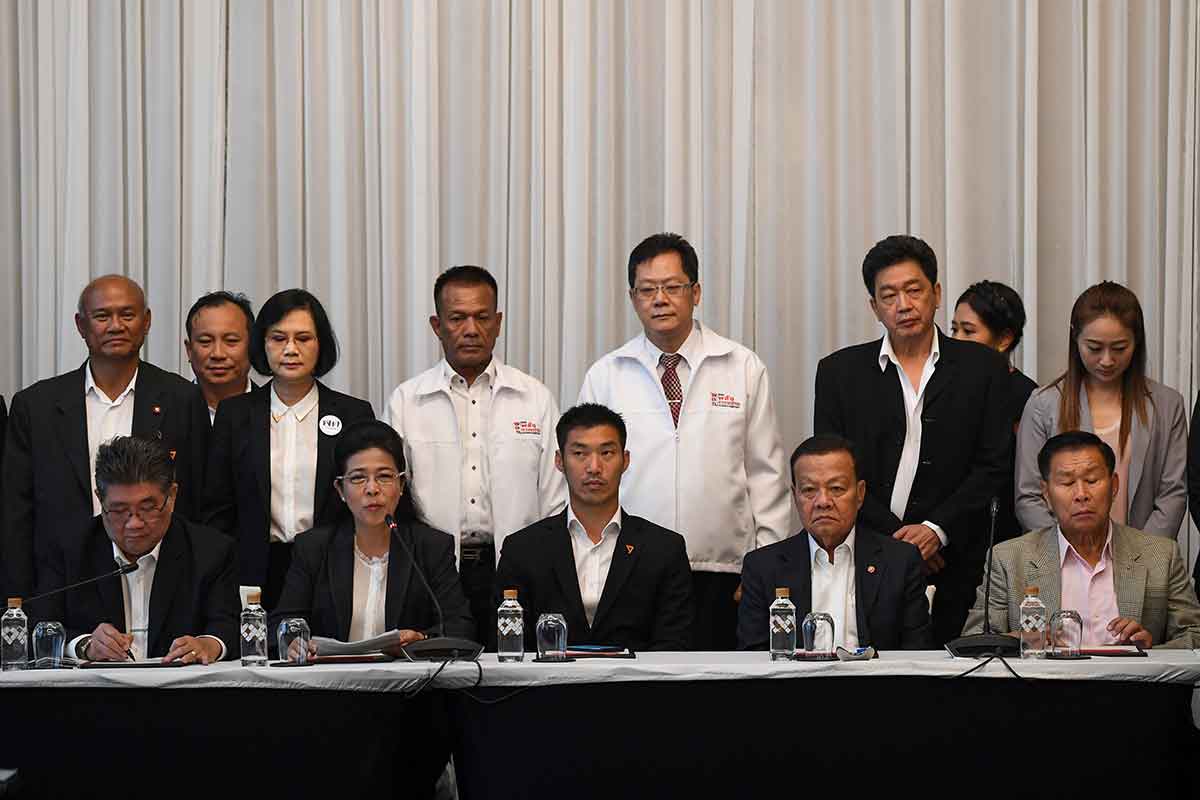Seven political parties formed a coalition in Thailand on Wednesday, vowing to thwart a military-backed proxy in a bid to end years of junta rule following the country's first election since a 2014 coup.
A junta-aligned party and its main rival have both claimed the right to govern the country after Sunday's vote, prompting a political standoff.
Questions over irregularities are swirling following invalidated ballots and accusations of skewed numbers.
Pheu Thai, affiliated with self-exiled former premier Thaksin Shinawatra, joined forces with six other parties in a bid to halt military-backed factions from leading the country.
"We want to stop the regime from hanging onto power," Pheu Thai's prime ministerial candidate Sudarat Keyuraphan told reporters.
"Pro-democracy parties received the most trust and consensus by the people," she added, conceding that final results have not yet been released.
Thailand has been ruled by a junta since a 2014 putsch led by General Prayut Chan-o-cha, the prime ministerial candidate for the Phalang Pracharath Party.
But Phalang Pracharath stunned the pro-democracy camp by winning the popular vote on Sunday with 7.6 million ballots, according to preliminary results.
Its main rival Pheu Thai got 400,000 fewer votes, but is now aiming to take the majority of seats in the lower house with its newly-formed coalition.
The seven-party bloc claimed it would take 255 out of the 500 lower house seats that are up for grabs, but with all official results yet to be confirmed the numbers are not ironclad.
Pheu Thai is linked to Thaksin and his sister Yingluck, whose administration was ousted in the 2014 coup.
Though Thaksin fled abroad in 2008 to avoid charges he says are politically motivated, he looms large over Thai politics.
Earlier this week he said that the election was rigged. Late Wednesday he said on Twitter that he was "glad for Thailand that the democratic side can gather the voices" for more than half of the seats.
A clearer picture of the lower house could emerge as early as Friday when more comprehensive figures are expected to be released.
But Pheu Thai still cannot elect a prime minister without commanding more than half – or 376 – of all 750 seats in the combined lower and upper houses.
The balance of power is stacked in the junta's favour thanks to a charter it drafted creating 250 military-appointed upper house seats.
That means non-military parties like Pheu Thai need an avalanche of votes in order to elect a prime minister.
The coalition formed Wednesday does not include two other high-profile parties – Bhumjaithai and the Democrat Party – which together have around 70 seats so far and whose allegiances are still up for grabs.
Phalang Pracharath is expected to seek its own allied bloc.
'People's mandate'
Sunday's election had been repeatedly delayed and was seen as a test for Thailand's tattered democracy, which has seen at least 12 coups since 1932.
Phalang Pracharath did better than expected by clinching the most popular votes, and the junta-backed party dismissed the coalition's claim to be the democratic choice.
"Please stop using 'democratic front' because in this election, no matter how many votes each party receives, everyone enters the election democratically," the party's secretary general Sontirat Sontijirawong told reporters.
Its leader said the party was confident but was waiting to see how many seats it would get.
A small protest was held outside its party headquarters Wednesday, led by activist Ekachai Hongkangwan who cautioned potential allies from joining forces with Phalang Pracharath.
"I don't want any snakes to enter the party," he said, throwing reptile repellent on the ground for effect.
Despite the coalition efforts to create a united front, it will be almost impossible for them to get the votes they need to elect a prime minister, said Aaron Connelly, Singapore-based research fellow at the International Institute for Strategic Studies.
They "seem to be laying down a marker, claiming the legitimacy to oppose the junta in the next parliament", he explained.
Initial results have been plagued by controversy after the Election Commission unexpectedly said it would delay the final count.
The head of Future Forward, a newly-formed party that targeted first-time millennial voters, urged a swift tally of votes across the country.
"We are calling for the Election Commission to perform its duty in a free and fair manner," the party's telegenic billionaire leader Thanathorn Juangroongruangkit said Wednesday after joining the coalition. - AFP
